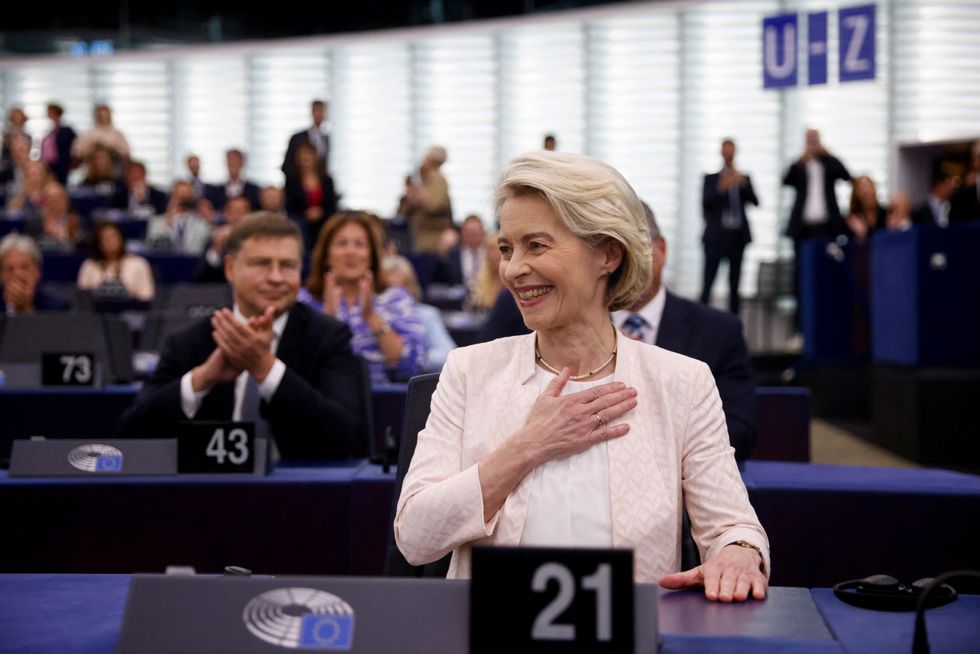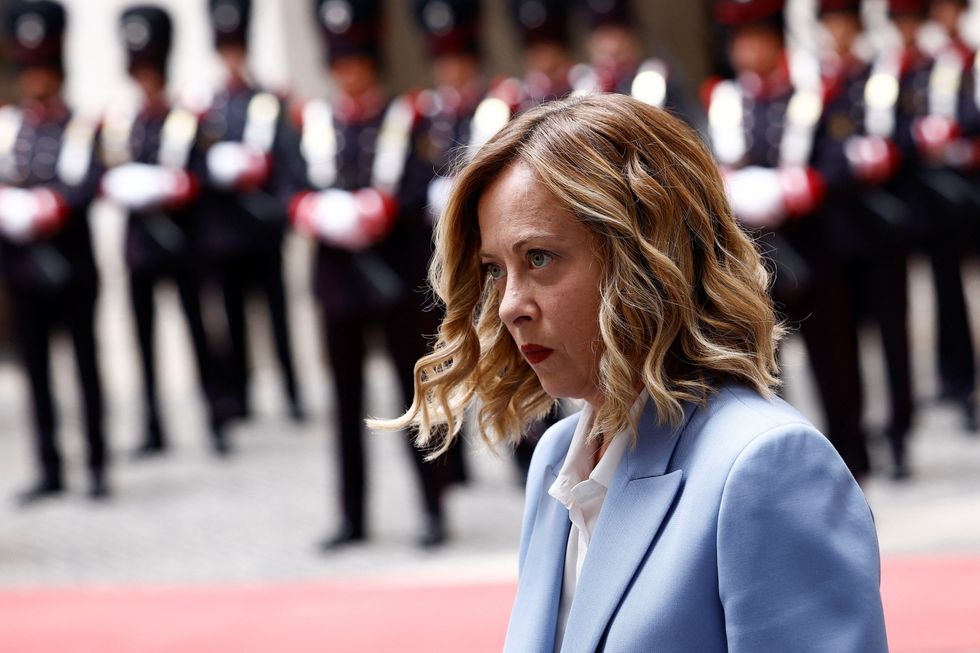European Commission President Ursula von der Leyen has been re-elected for a second five-year term following a secret ballot vote by MEPs.
The 720-member European Parliament approved her with 401 votes in favour, 284 against and 15 abstentions. She needed 361 votes to pass.
Von der Leyen had outlined a range of plans for the bloc earlier today in her final push for re-election – but her continuation in the role failed to win the support of a number of key European players.
Key to her strategy over the next five years will be the establishment of a “true European Defence Union” – a single market for defence products and services – as the EU seeks to shore up its military independence with Russia’s war in Ukraine ongoing and the US Presidential Election still to come.

Von der Leyen beamed triumphantly following her re-election
Reuters
The former German defence minister also proposed a legally-binding EU target to cut emissions by 90 per cent by 2040 compared to 1990 levels.
Von der Leyen had also hinted at plans to continue with a controversial ban on new CO2-emitting cars by as soon as 2035 – a move seen by some as laying responsibility for meeting carbon targets at consumers’ front doors.
But despite her plans for a bloc-wide illegal migration crackdown – set to include a trebling of continental border and coast guard officials to a 30,000-strong force – she failed to win the votes of key parties on the right, including Italian PM Giorgia Meloni’s Brothers of Italy party, which sends 24 members to the European Parliament.
“Voting in favour of Ursula von der Leyen would have meant going against some of our principles,” Nicola Procaccini, co-chair of the European Conservatives and Reformists (ECR) group which contains Meloni’s party, told reporters.
MORE FROM THE EU:

Giorgia Meloni’s Brothers of Italy party did not back the incumbent EC President
Reuters
Earlier today, Von der Leyen addressed the Parliament with a speech centring on the necessity of European independence.
She told lawmakers in Strasbourg: “The next five years will define Europe’s place in the world for the next five decades. It will decide whether we shape our own future or let it be shaped by events or by others.”
The incumbent EC President had also pledged to appoint a dedicated Commissioner for Enlargement to help bring candidate countries closer to EU membership – with Montenegro and Serbia closest to joining the bloc, and Ukraine looking to fast-track its own entry in a move which could spark fury in Moscow.
Russian officials had previously condemned Von der Leyen’s defence plans, with the Kremlin claiming her policy ideals represented “militarisation (and) confrontation”.
More to follow..